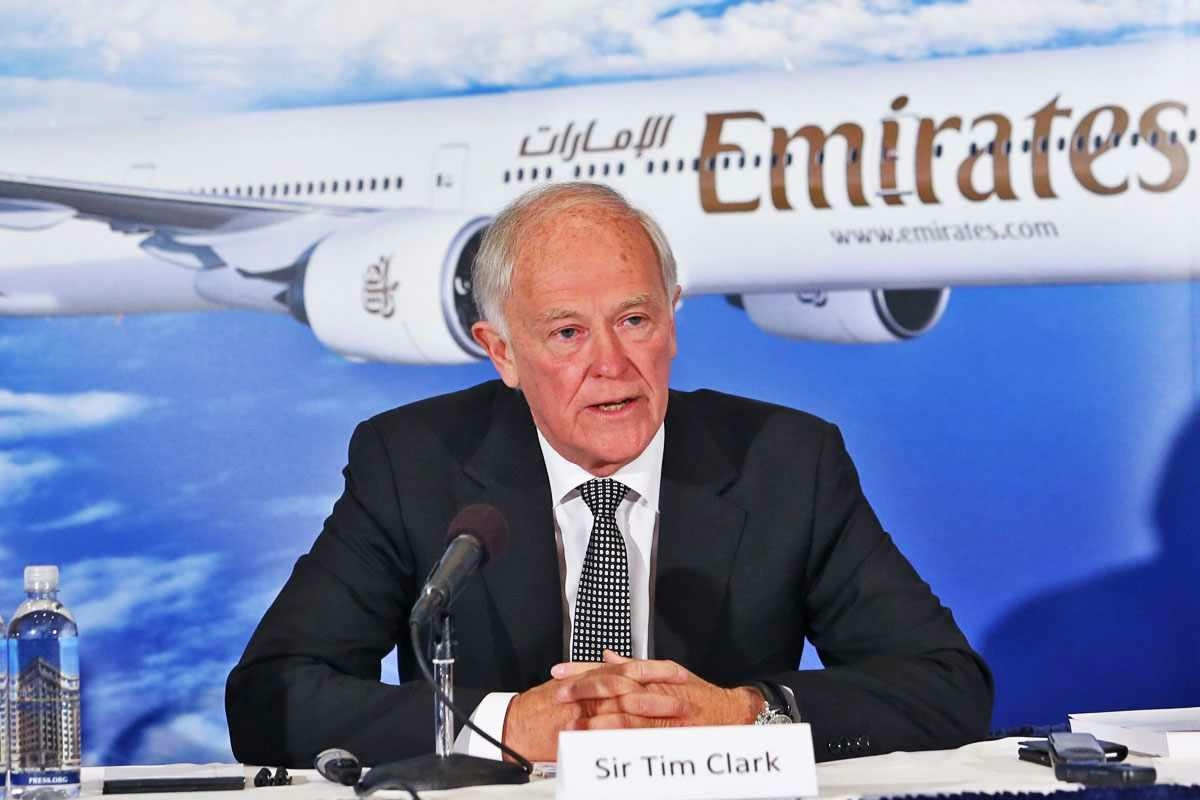AeroGenie — Your Intelligent Copilot.
Trending
Categories
Tim Clark Claims Rival Airlines Undermined Airbus A380 to Weaken Emirates

Tim Clark Accuses Rival Airlines of Undermining Airbus A380 to Weaken Emirates
Despite its initial promise as a revolutionary aircraft, the Airbus A380 has largely been regarded as a commercial misstep, with most major airlines phasing out the superjumbo from their fleets. Emirates remains a notable exception, operating nearly 120 A380s across its global network. Tim Clark, President of Emirates since 2003, has now alleged that rival airlines deliberately undermined the A380 program to diminish Emirates’ competitive advantage.
Allegations of a Coordinated Strategy Against the A380
In an interview on The Air Show Podcast, Clark claimed that US carriers and members of the Star Alliance intentionally refrained from purchasing the A380. He suggested this collective decision was aimed at forcing Airbus to cease production of the aircraft, thereby weakening Emirates, which depends heavily on the A380. Clark stated, “American carriers weren’t having anything to do with [the A380] anyway, because, in those days, this was the weapon in the armory of Emirates.” He further asserted that within the Star Alliance there was a “clear mandate: do not buy the A380, because it gives immense power to [Emirates]. If we don’t buy it, eventually its demise will come about.”
Clark also argued that US legacy carriers such as American Airlines, Delta Air Lines, and United Airlines could have successfully operated the A380 on lucrative long-haul routes. He questioned, “Who could say to me you could fly from Los Angeles to Tokyo with the A380, whether United, American, or Delta, and not make money?” This comment highlighted his belief that the aircraft was well-suited for high-demand transpacific corridors. However, US airlines have generally preferred operating more frequent flights with smaller aircraft rather than fewer flights with larger planes like the A380.
Industry Context and Market Dynamics
Clark’s allegations emerge amid heightened competition and evolving dynamics within the aviation industry. Market analysts and competitors may view his claims with skepticism, noting the absence of concrete evidence supporting a coordinated effort to undermine the A380. Rival airlines are likely to respond with denials or strategic initiatives aimed at strengthening their own market positions.
Recent industry data provides additional context to Clark’s assertions. Airbus has surpassed Boeing in aircraft deliveries, with its A320 series now the world’s most popular commercial jet. This shift underscores the intense competition among manufacturers and airlines and may indirectly support Clark’s perspective on the strategic nature of market decisions. Meanwhile, regulatory developments, such as European approval of Boeing’s acquisition of Spirit AeroSystems following the divestment of Airbus-related activities, illustrate the complex environment in which airlines and manufacturers operate to maintain competitive advantages.
Clark’s comments have reignited debate over the fate of the A380 and reflect broader tensions and strategic considerations shaping the global aviation industry. Regardless of whether a coordinated effort existed, the limited adoption of the A380 outside Emirates remains a significant chapter in modern aviation history.

Emirates Unveils Cabin Design for New Boeing 777X

Eighteen Years On, the Airbus A380 Remains Central to a $34 Billion Airline

How a boom in luxury airline seats is slowing down jet deliveries

Navitaire Outage Attributed to Planned Maintenance

DigiYatra Debuts Outside Aviation at India AI Impact Summit

Vietnam Orders Strengthen Boeing’s Commercial Outlook

Airbus Signals Uncertainty Over Future A400M Orders

JobsOhio Awards $2 Million Grant to Hartzell Propeller for Innovation Center

Collins Aerospace Tests Sidekick Autonomy Software on YFQ-42A for U.S. Air Force CCA Program

How the Airbus A350-1000 Compares to the Boeing 777
